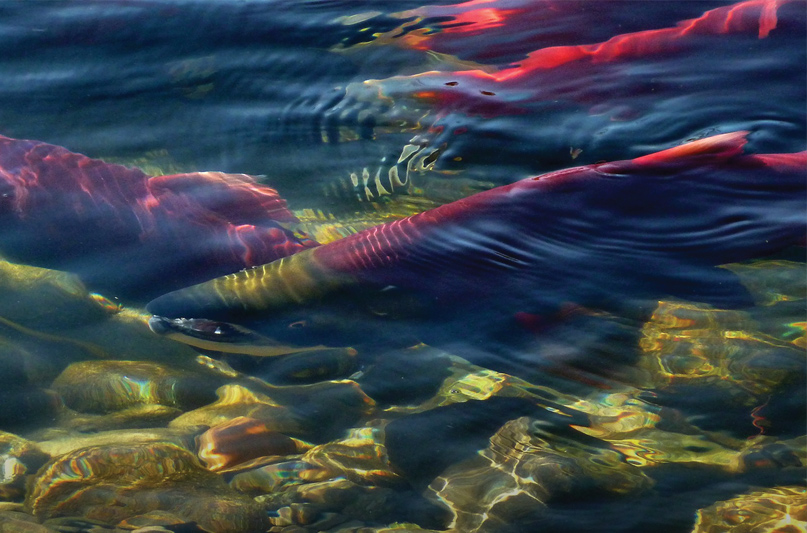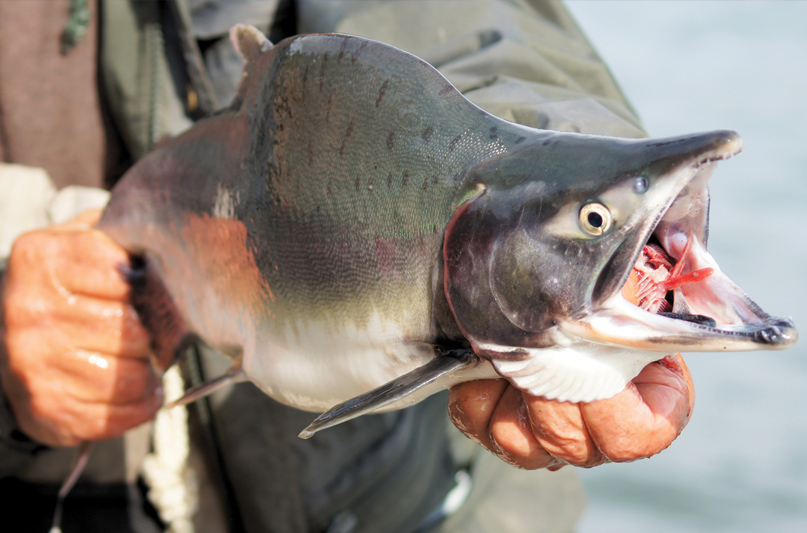 Not even a full month after Washington Governor Jay Inslee banned Atlantic salmon farming from state waters, British Columbia government officials began taking similar actions. Fish farm licenses are expiring in British Columbia (B.C.), and to protect wild salmon stocks and reconciliate with indigenous peoples, the Canadian government is setting new standards for the renewal of fish farm operating tenures.
Not even a full month after Washington Governor Jay Inslee banned Atlantic salmon farming from state waters, British Columbia government officials began taking similar actions. Fish farm licenses are expiring in British Columbia (B.C.), and to protect wild salmon stocks and reconciliate with indigenous peoples, the Canadian government is setting new standards for the renewal of fish farm operating tenures.
“Wild salmon are critical to the culture and well-being of many B.C. First Nations,” explains Agriculture Minister Lana Popham. She acknowledges the many factors contributing to the decline of wild salmon populations, “and one of them is fish farms,” she states.
British Columbia has 120 operating fish farms from Vancouver Island to the Sunshine and Central Coasts. According to Popham, fish farms generate $1.5 billion annually and employ 6,600 people. She explains, “B.C. is very aware that thousands of jobs depend on maintaining healthy marine environments, along with livelihoods and economic prosperity of coastal communities and First Nations.” However, “the challenges that face our wild salmon have been ignored for too long.”
All fish farmers must meet two criteria when tenures are up for renewal: All B.C. west coast fish farms will need First Nations approval before their tenure can be renewed, and fish farmers must prove to the federal government that their farm will not impact wild salmon stock. Specifics about these two requirements are still being addressed by Broughton-area First Nations and the government. The Department of Fisheries and Oceans in B.C. will determine the conditions under which fish farms can operate without threatening wild salmon stock. As of now, expired fish farm tenures are set to continue their business as it stands on a month-to-month basis until the First Nations and the government determine the specifics of these requirements.

These two requirements will go into full affect by 2022, but B.C. Union of Indian Chiefs president and chief of Kwikwasut’inuxw Haxwa’mis Bob Chamberlin, among other members of the First Nations, tells CBC News that 2022 is “four years too late.” Those who oppose open-net fish farms express their concern for the spread of diseases, viruses, and sea lice to wild salmon. However, Chief Chamberlin is pleased that they “now have a government that recognizes the value of wild salmon, not just to First Nations people but to the economy of British Columbia.” He sees this process as a big step toward implementing the U.N. Declaration on the Rights of Indigenous Peoples.


